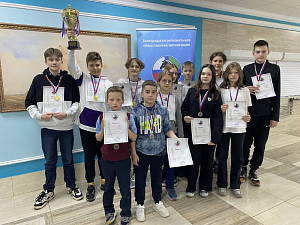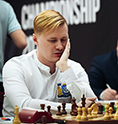Challenger’s Sharp Sword
Eteri Kublashvili’s blog from the FIDE Candidates Tournament
April 26. Challenger’s Sharp Sword
The tournament resumed after a Sunday rest day. I think the participants could walk and relax to the best of Yekaterinburg’s sunny weather.
The competition has renewed the symbolic first move tradition. The penultimate round guests were representatives of the Universiade Organizing Committee, which will be held in Yekaterinburg in 2023.
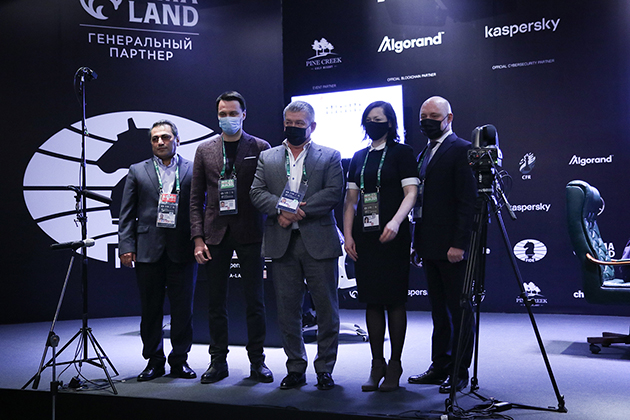
After the round began, I managed take a short interview from Peter Svidler, who is Kirill Alekseenko's second here.
- Peter, are you enjoying your time here in Yekaterinburg?
I am, in general, but I would like to see more about Kirill's performance. This year is not as nerve-racking as the previous one. The tournament is exciting, and it would otherwise be a great pleasure watching it if not for my personal involvement. From my point of view, the first half rated decently, but the second one is on fire.
- Whose performance appeals more to you here?
- There is little doubt that Anish is the one winning the second half both in terms of the points scored and quality of games displayed.
- Someone tweeted that Anish had done a very good job during the past year on his psychology and was now confident in reeling in the winning positions. Do you agree with this viewpoint?
- I am not at all a big fan of this talk about someone else's psychology as it seems vicious to me in its very nature. He predictably scored his “plus four” in Wijk aan Zee, and the way he performed on the Internet made some internal changes in terms of stress resistance quite plain for everyone to see. Besides, he is on the constant improve as a chess player, although, relatively speaking, he was already excellent as far back as in 2017, but the results testify to some sort of intrinsic progress achieved.
His performance is simply superb. To come up with such a powerplay under such tension at this level a tournament deserves admiration. That it may still not be enough is an entirely different matter.
Having started with a certain surplus in points, Ian Nepomniachtchi, in his turn, does everything logically and correctly by maintaining his lead and scooping points that can be scooped. To win games that he did here and punish for the opening or any other type of mistakes, you need to be a good master of the genre “being at the right time in the right place.”
In the first half, Ian played more vivid chess than in the second, but this is exactly what he needed to do to get some edge over his opponents. For the time being, he is showing an extremely pragmatic type of play, which is undoubtedly a correct approach. To borrow a classical quote from Vassily Ivanchuk, Kirill "confused the page" and Hao simply "grew tired" playing against Ian, but they are both strong chess players that you need to do hard work to grind down, after all. However, what he did in the year 2020 by outplaying his motivated opponents “on a handkerchief” and demonstrating brilliant preparation and focus, he may not necessarily need in the second half.
All other participants demonstrate some good qualities here and there, but it is clear that overall we have two people who play well and will sort things out among themselves. However, this fact does not take away from this still super interesting event: everyone is doing his best, everyone has come to fight, and it will not be clear what is happening until the very last round. If I were here as a chess fan, which I still am, much to my grief (laughing), I would have enjoyed it immensely.
However, Peter’s prediction did not come true after all. To the much delight of all Russian fans, the penultimate round has settled everything, in which Ian Nepomniachtchi, up a pawn, forced a draw against Maxime Vachier-Lagrave from the position of strength, and Anish Giri as Black could not stop Alexander Grischuk’s onslaught and lost the game.
Nepomniachtchi - Vachier-Lagrave was the first of two key games to finish. At a press conference, the Russian highlighted that he opted for a draw on realizing that Giri's position was lost. Nevertheless, Nepomniachtchi was extremely calm at the press conference, not allowing himself any manifestations of joy as the competitor's game was still underway.
Grischuk confidently pressed his advantage home and Ian finished first with one round to go (even in the worst-case scenario with equal points shared between the two - Ian outperforms Giri on tiebreakers thanks to his victory in their direct encounter).
The news of Ian Nepomniachtchi’s victory was instantly everywhere across the Internet and mass media.
President of the Russian Chess Federation Andrey Filatov, "I congratulate Ian on a brilliant victory in such a challenging competition! To win the Candidates Tournament with one round to go is a tremendous achievement and an indicator of extensive efforts put in by Ian and his staff, which was supported by the general partner of the Russian Chess Federation - PJSC" PhosAgro ". This is a landmark and important victory for the Russian chess!"
Garry Kasparov also congratulated Nepomniachtchi, adding that " The crown of champion may be heavy, but the sword of the challenger must be razor sharp!"
Time to say Dubai, - tweeted Magnus Carlsen on his account.
I end my blog on this note because the most looked-forward-to thing has come true- our chess player has become a runner-up. I congratulate Ian Nepomniachtchi and his team on their superb achievement and wish their success to continue!
April 24. Make it or Break it
I have come to find the layout of Yekaterinburg appealing to me enormously, at least its central part. The streets run in parallel lines cutting each other at right angles, and everything seems exceptionally close and convenient. It is possible to find your way from the Four Elements Hotel, the accommodation of some of the press service workers, to the tournament venue in the Hyatt Regency with your eyes virtually closed and in more than one path. If you feel like it, there is an inconspicuous short street that you pass by – called the Volodarsky street – where one may see an abandoned gray building written all over with graffiti.
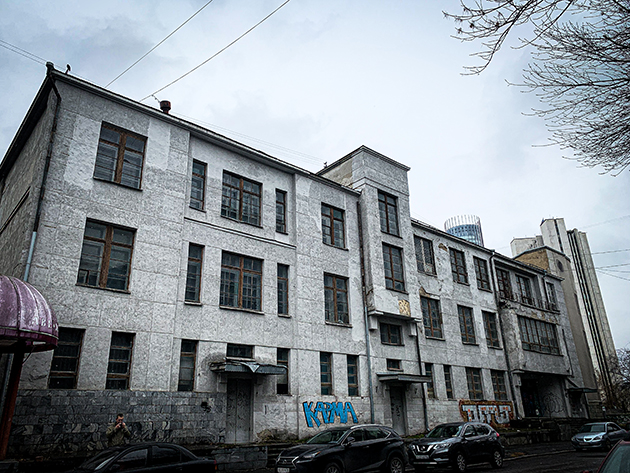
In fact, this is the legendary House of Culture named after Y. Sverdlov, which used to host a no less legendary rock club in the late eighties - early nineties. In times gone by, this building saw such musical bands as Nautilus Pompilius, Agatha Christie, Chaif, Semantic Hallucinations, and others.
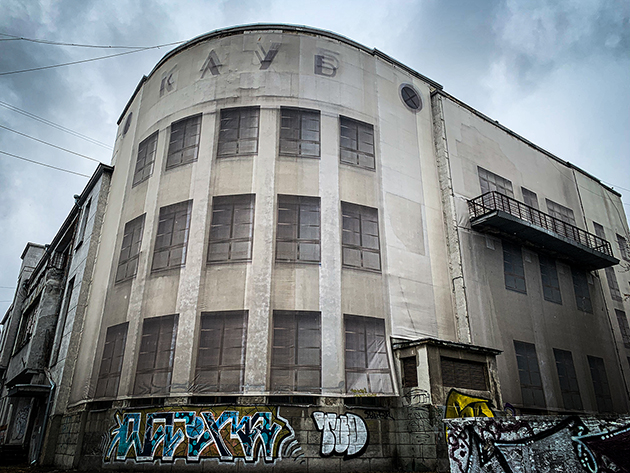
Below you will find more photos of the city.

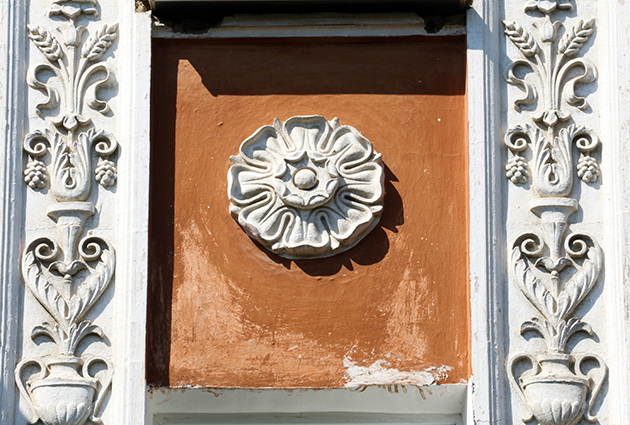
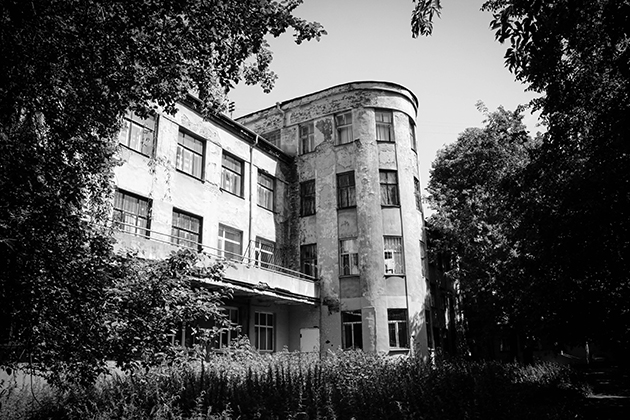
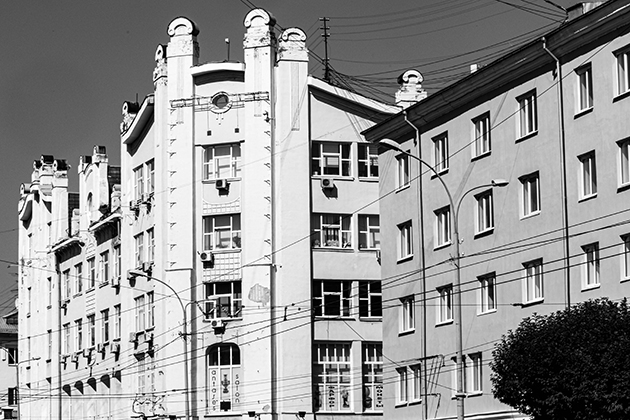
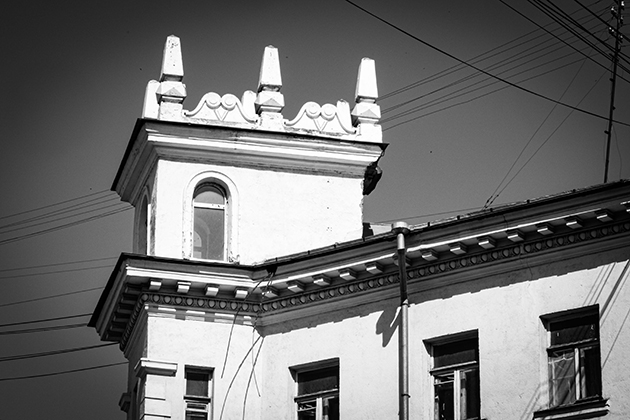
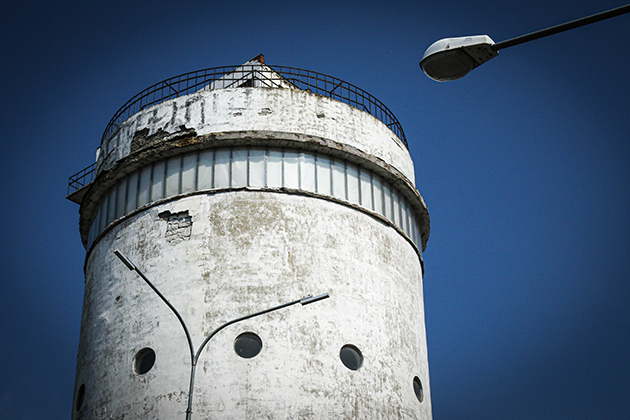

Acquainting herself with the city of Yekaterinburg is Dana Reizniece-Ozola, FIDE Managing Director, and Head of the Appeals Committee.
- I have not visited that many sights in Yekaterinburg so far. The trademark of chess tournaments is that the only beauty you usually get to see the one taking place across 64 squares (smiling). On a rest day they took us to the village of Mariinsk, which was an exciting trip. Just as in many big cities, it goes to show that people tend to gravitate towards nature because of COVID. Igor Chernogolov, one of the Sverdlovsk region chess life sponsors, buys out old houses to restore them together with partners. His passion and respect, manifesting itself in the way he treats the work of masters and checks every minor detail and nuance, amazed me. You can achieve a lot if your approach has such awe embedded into it. Such chess enthusiasts are in short supply indeed!
- Dana, what can you say as a grandmaster and head of the Appeals Committee?
- It has been plain sailing so far!
- Yes, and this is what counts indeed! You spend much time watching the participants’ games and with interest at that. Is there anyone that you can single out in particular?
- I really like the grandmasters’ level of preparation. As Maxime Vachier-Lagrave highlighted at the prestart press conference, with everyone having put in so much work into preparing this year, there were many interesting lines to be expected. This is exactly how it happened: the participants did not come empty-handed. Even if the games end in a draw, they are still full of struggle and content. I can't single out anyone in particular, I generally like the participants’ overall attitude to the event. Even those who are no longer in contention do not fail to come up with interesting combative games.
- You are currently the Managing Director and Deputy Chairman of the FIDE Management Board. You definitely have a lot of work and important projects to run. Please tell us about the main fields of your work.
- Besides my daily management and administrative routine, I am very happy about my share of social sphere activities. There is a Development Fund to help us run various projects at the level of federations, zones, and continents, embracing those countries is less vibrant chess life. I am also involved in chess education, projects for people with special needs, women's chess, coaching and Fair Play, which is virtually mission impossible (laughing).
I am very happy about having managed to organize various initiatives within such a short timeframe. We recently held a seminar on teaching chess to children with autistic spectrum disorder. In May, there will be the online conference as part of the Chess for Freedom project. We keep in touch with the Office of the United Nations High Commissioner for Refugees about carrying out chess projects in this direction. It is difficult to do anything at the moment due to the coronavirus limitations. However, one of the ideas we are promoting is teaching chess in a refugee camp in Kakuma, Africa.
The results are not so swift, but it is important that the subject is not left unattended. We consider chess not only as a professional sport, but also as a tool for achieving social goals and involving less protected segments of the population, providing them not only with education, but also with the opportunity to get a future profession.
As if to confirm the validity of Dana's words, no draws were made in round twelve. FIDE's Twitter account claims this has never been the case in the FIDE Candidates Tournaments ever.
Ian Nepomniachtchi defeated Wang Hao as Black to maintain his sole lead, much to the delight of all Russian fans. At a post-game press conference, Wang Hao said he was exhausted and unable to find a way to defend his position.
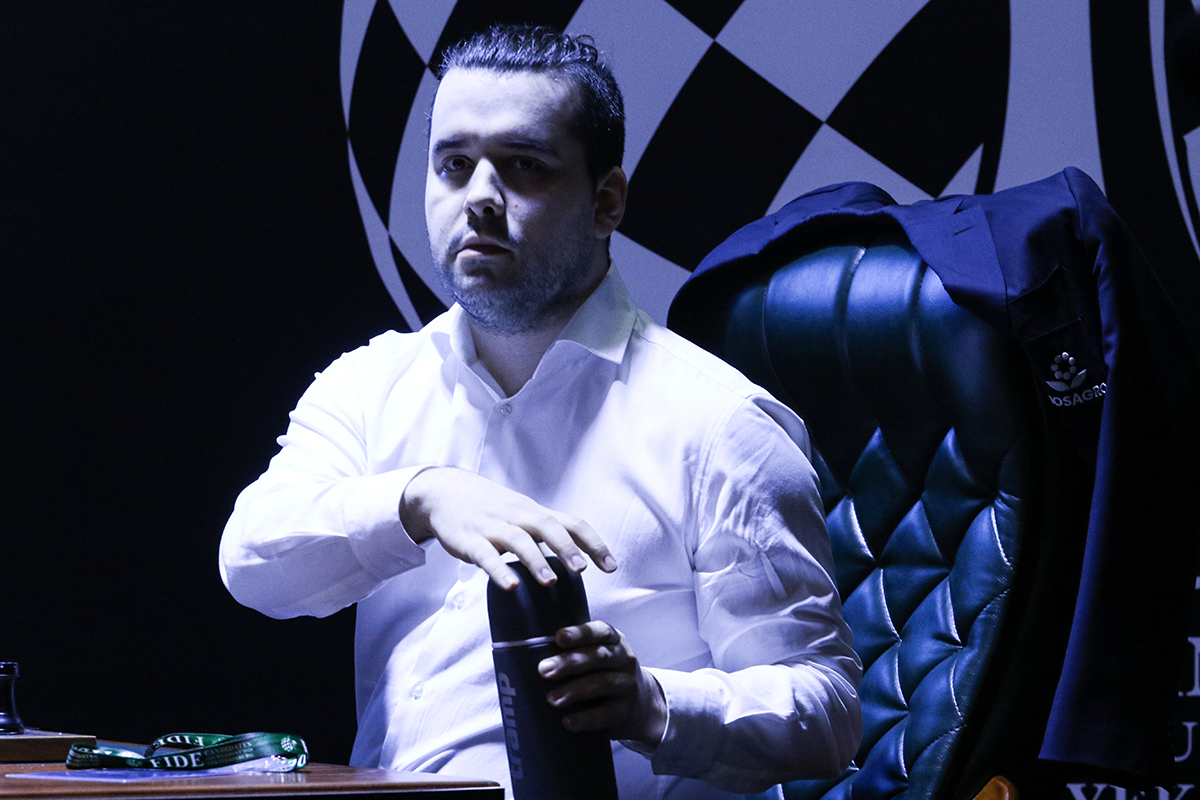
Anish Giri also defeated Fabiano Caruana as Black and was literally overwhelmed with joy when the game ended. At the press conference, the GM said in Russian that he was delighted.
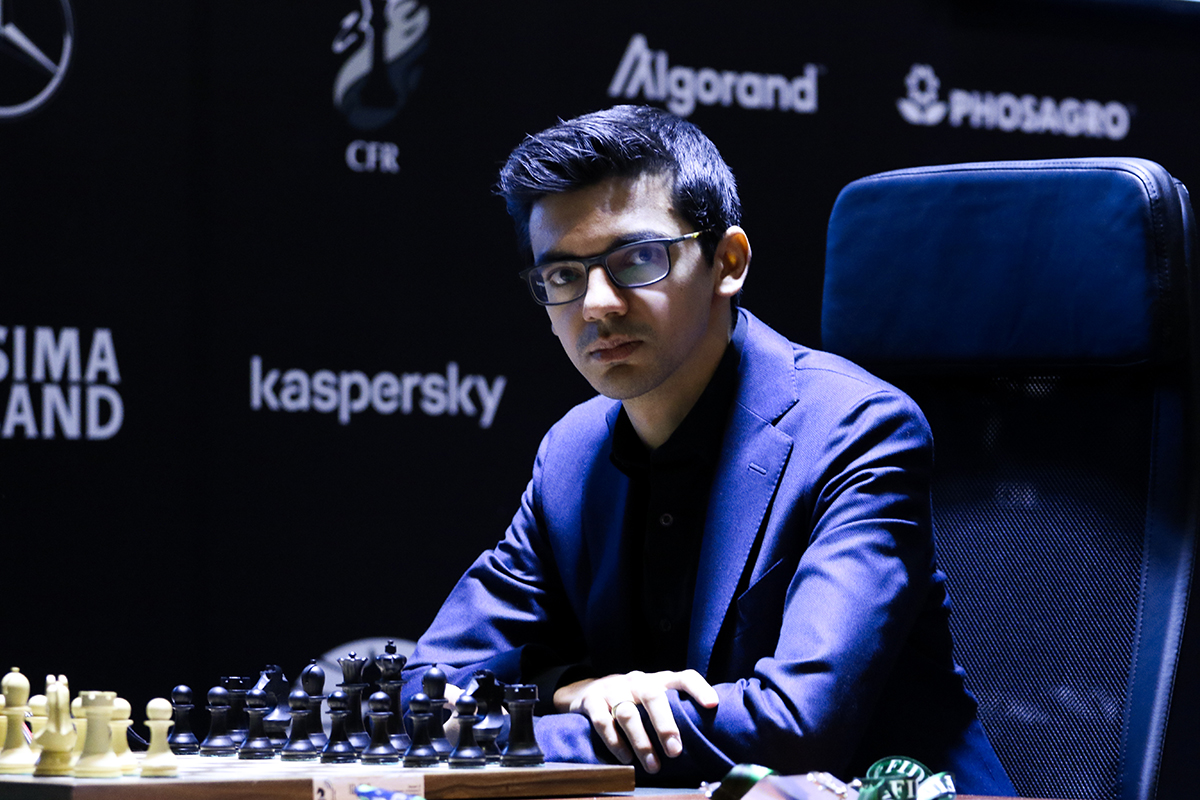
Ding Liren has scored his second tournament victory by defeating Alexander Grischuk as White in the Queen's Gambit variation that the Russian employed on more than one occasion himself.
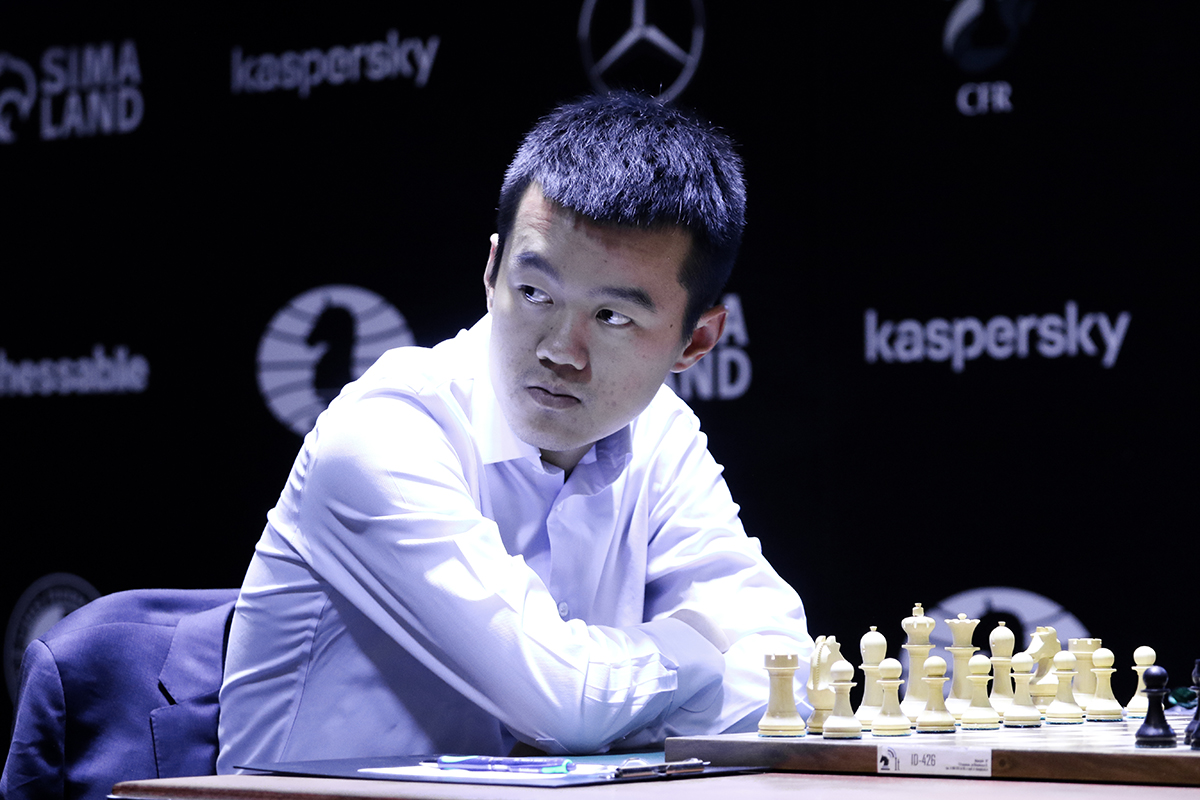
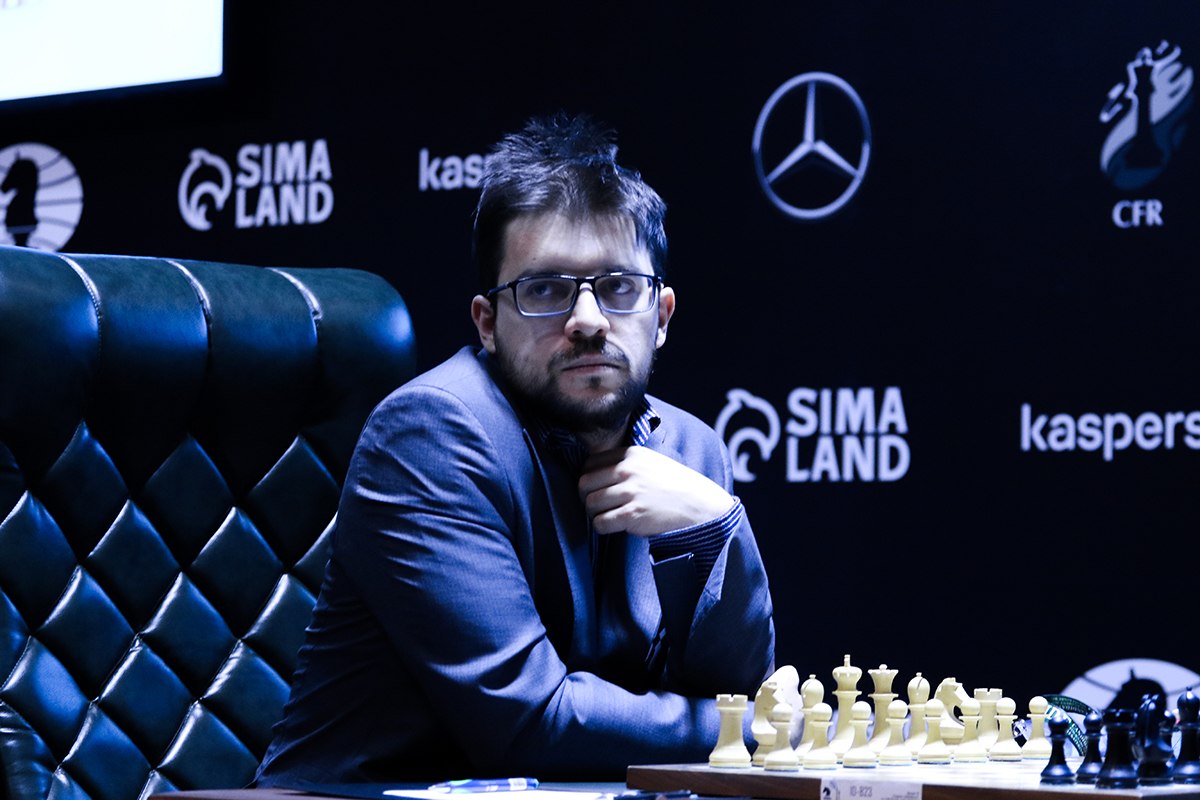
Standings after Round 12:
1. Ian Nepomniachtchi - 8 points
2. Anish Giri - 7.5
3. Maxime Vachier-Lagrave - 6.5
4. Fabiano Caruana - 6
5. Alexander Grischuk - 5.5
6-7. Wang Hao, Ding Liren - 5
8. Kirill Alekseenko - 4.5.
April 25 is a rest day at the tournament.
Round 13 pairings:
Wang Hao - Fabiano Caruana
Ian Nepomniachtchi - Maxime Vachier-Lagrave
Kirill Alekseenko - Ding Liren
Alexander Grischuk - Anish Giri
April 23. Constructive Solutions
In one of the early interviews dedicated to the resumption of the FIDE Candidates Tournament Anish Giri joked that on returning to the playing hall he felt like having left it only yesterday. It is just the same but the chair, I would add on my part. Indeed, different participants’ chairs have been discussed at length since the beginning of the event.
Despite a year’s break, the Candidates Tournament has never been off the agenda for the participants, whose work schedule, serious preparation and no less serious negotiations were focused on it. Meanwhile, a non-participant's feelings might be somewhat different. Last year's part seems already faded into something very distant, an event from another life (after all, COVID-19 was only making its first steps back then, and there was no predicting what was in store ahead). Therefore, I feel like returning to the chess eventl in Yekaterinburg is a clean slate.
The tournament atmosphere is no longer reminiscent of a battlefield, as was the case last year. They admit a limited number of fans into the playing hall for the first five minutes of the round, and then there is a choice between moving to the adjacent hall to listen to Sergei Shipov’s comments or take a look at the display of Anatoly Karpov’s sets of chess and stamps.
All in all, chess life is in full swing in Yekaterinburg with own tournaments run in parallel and banners of the Candidates Tournament flying across the city. However, no matter the world events, amateurs regularly get together to play chess in the city center on Plotinka.
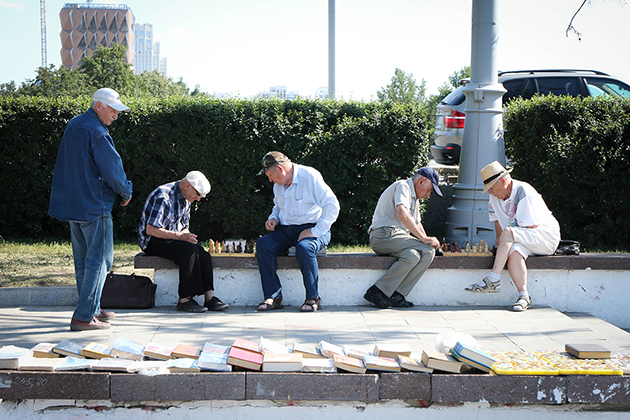
The Urals capital is a city distinguished by its own character, style, pride, and this time a less tight schedule allows me to get to know it better. Thus, Yekaterinburg is rich in unique architectural monuments - trademarks of the "Sverdlovsk constructivism". Among them are the Iset hotel, the so-called Chekist Town, the Dynamo stadium, various buildings on Malyshev Street, and many more.
Given Below are some of the typical pictures of buildings of that period.
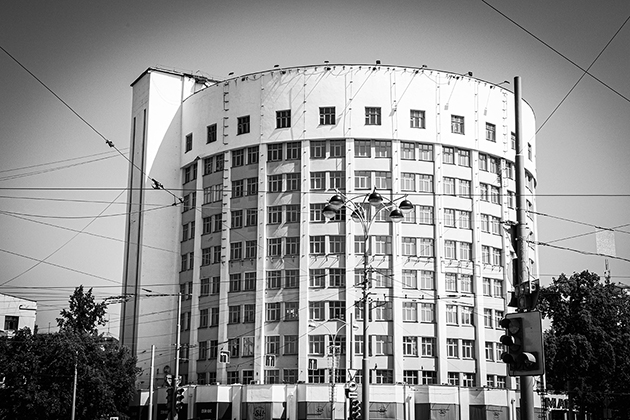
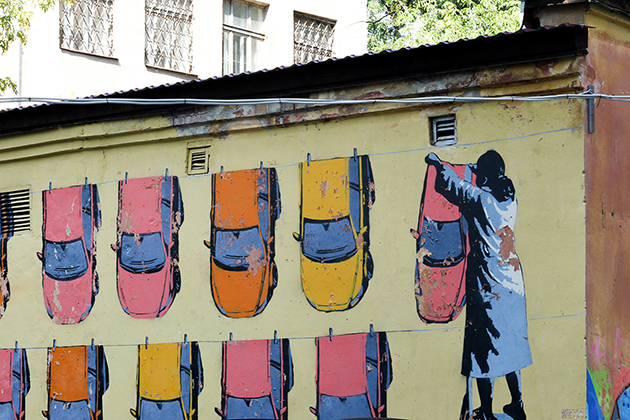
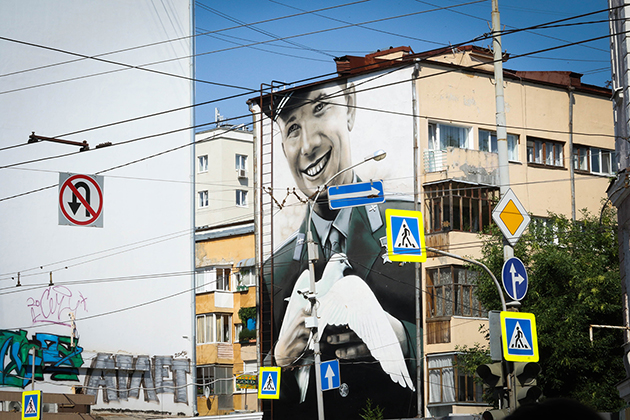
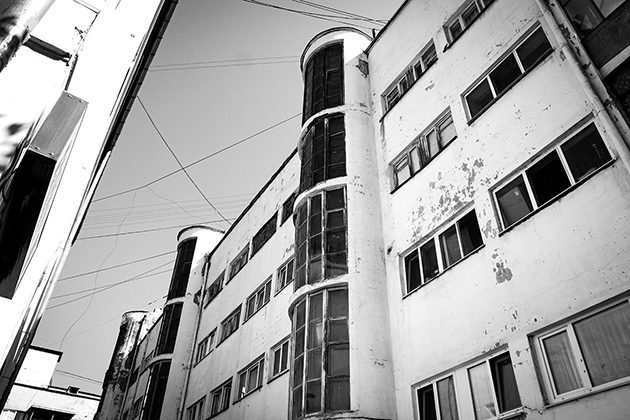
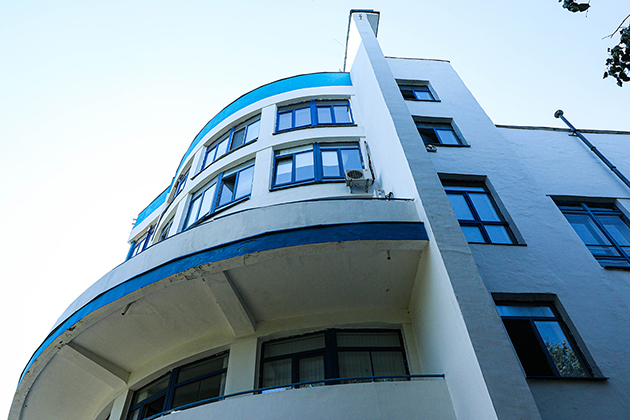
Constructivism was all about discipline, brevity and integrity. There is nothing superfluous here, and everything is subjected to the goal of serving its purpose to the best of its functional ability. Focusing mainly on your objectives, cutting off all that is superfluous - this is also about sports.
Thus, the tournament leader Ian Nepomniachtchi would not give Fabiano Caruana the slightest chance in round eleven by opting as White for the reinforced concrete variation of what was the crossroad between the Two Knights Defence and the Scotch Game.
Alexander Grischuk has scored his first victory in the tournament by defeating Maxime Vachier-Lagrave in an intense battle that saw a novelty on move nine. After the exchanges, it seemed that the worst was over for Black, but MVL committed a fatal strategic mistake.
Grischuk – Vachier-Lagrave
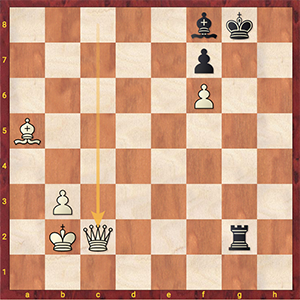
42…Rxc2?
42…Ba3+! was a much stronger and tougher continuation in this position.
As the Russian shared after the game, to bring the king to the queenside was of paramount importance for Black, and it was the bishop shot that served the purpose.
“I usually go out to smoke after 40 moves and here I stayed to induce playing fast, it was my trick,” – said Alexander at the press conference.
This approach paid off. The same-coloured bishops ending is won for White, and the Russian converted confidently.
It took Anish Giri 29 moves to outplay Ding Liren, who is clearly out of shape. The Netherland GM’s bishop sacrifice was counter-intuitive.
Giri – Ding Liren
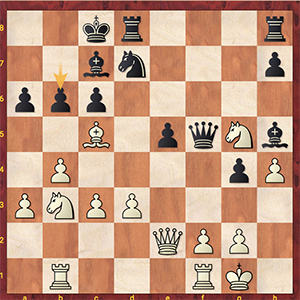
23. Ne4! bxc5?!
The bishop turns out to be a Greek gift.
24. bxc5 Nf6 25. Nd6+ Bxd6 26. cxd6 Rxd6 27. d4 c5 28. Nxc5 Re8 29. Qc4 Black resigned.
Round eleven finished with a draw in Alekseenko – Wang Hao.
Standings after Round 11:
1. Ian Nepomniachtchi - 7 points
2. Anish Giri - 6,5
3. Fabiano Caruana – 6
4-5. Alexander Grischuk, Maxime Vachier-Lagrave - 5.5
6. Wang Hao – 5
7. Kirill Alekseenko - 4,5
8. Ding Liren - 4.
Round 12 pairings:
Fabiano Caruana - Anish Giri
Ding Liren - Alexander Grischuk
Maxime Vachier-Lagrave - Kirill Alekseenko
Wang Hao - Ian Nepomniachtchi














